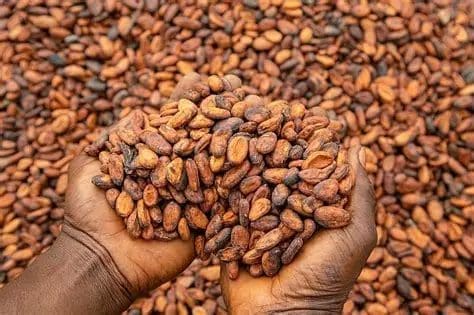Global agricultural giant Cargill Inc. has suspended cocoa grinding operations at its Ivory Coast facility for the first time in decades, exposing critical vulnerabilities in the world’s cocoa supply chain as deteriorating bean quality threatens production across West Africa.
The unprecedented halt by the US-based processor highlights mounting pressure on the global chocolate industry as weather disruptions and disease outbreaks ravage cocoa farms in the world’s largest producing region. Industry sources report that Cargill suspended operations after bean lots showed rejection rates of 5-6 percent, dramatically exceeding the typical 1 percent threshold.
The suspended beans exhibited critically low fat content, elevated acidity levels, and excess waste material that made processing uneconomical and risked damaging expensive grinding equipment at the company’s Yopougon facility. The plant, which underwent a $100 million expansion completed in 2021 to become Africa’s largest single cocoa-grinding operation, processes hundreds of thousands of tons annually for global chocolate manufacturers.
Ivory Coast’s current mid-crop production has fallen to an estimated 400,000 metric tons, representing a 9 percent decline from the previous year as delayed rainfall patterns stunted crop development. Farmers across major producing regions report widespread brown rot infections and insufficient sunshine levels critical for proper bean development.
The situation has been compounded by the accelerating spread of Cocoa Swollen Shoot Virus, an endemic pathogen causing significant economic losses to cacao production in West Africa. Industry consultants describe the disease as an “existential threat” that has reached alarming infection levels across key producing areas including Daloa, Duékoué, Vavoua, Soubré, and Abengourou.
The most severe strains of the virus can reduce yields by approximately 70 percent and cause tree death within two to three years of infection, creating long-term supply challenges that extend far beyond current quality issues. Reports indicate that many infected plots are being replanted rather than properly cleared, perpetuating the cycle of viral transmission and threatening broader regional production stability.
Global cocoa futures have responded sharply to supply concerns, with the December contract on ICE New York trading near $7,380 per metric ton, up 1.19 percent week-on-week. Open interest remains elevated at over 90,000 contracts, though down significantly from year-ago levels as traders navigate unprecedented market conditions. Cocoa inventories at major US ports have fallen to four-month lows, while European processing facilities report increasing difficulty sourcing quality beans for chocolate production.
The supply constraints have created ripple effects through global commodity markets, with analysts warning of sustained price volatility as structural challenges across West African production regions show few signs of near-term resolution. The crisis is beginning to filter through to retail chocolate prices, creating divergent effects across different market segments.
High-income markets including Switzerland and Nordic countries have shown resilience in premium chocolate segments, where consumers appear willing to absorb higher costs for quality products. However, price-sensitive regions across Eastern and Southern Europe face mounting pressure as consumers either downgrade to cheaper chocolate alternatives or reduce purchase frequency entirely.
This demand destruction threatens to compound supply-side challenges with weakening consumption patterns. The convergence of weather volatility, local currency weakness against major trading currencies, and softening consumer demand from price resistance has created a complex web of challenges for the global cocoa industry.
Cargill’s suspension reflects broader structural problems affecting cocoa production across West Africa, which accounts for approximately 70 percent of global supply. Poor farm management practices, aging tree stock, and inadequate disease control measures have combined with climate change impacts to create systemic vulnerabilities throughout the region.
The current crisis extends beyond immediate quality issues to fundamental questions about the sustainability of current production methods and the industry’s ability to meet growing global chocolate demand. As disease pressure intensifies and weather patterns become increasingly unpredictable, the foundation of global cocoa supply faces mounting stress that threatens market stability.
Industry observers warn that without significant intervention to address disease management, improve farming practices, and develop climate-resilient cultivation methods, the current supply fragility may represent the beginning of a prolonged period of market instability rather than a temporary disruption. The situation exemplifies the challenges confronting agricultural commodity markets in an era of climate change and increasing global food security concerns, with implications extending well beyond chocolate production to broader questions of supply chain resilience.
The convergence of multiple crisis factors in Ivory Coast underscores the fragile nature of global food systems and the urgent need for comprehensive strategies to address climate adaptation, disease management, and sustainable agricultural practices in critical producing regions worldwide.
Source: newsghana.com.gh











